Indigenous Governance Database
Citizenship/Membership
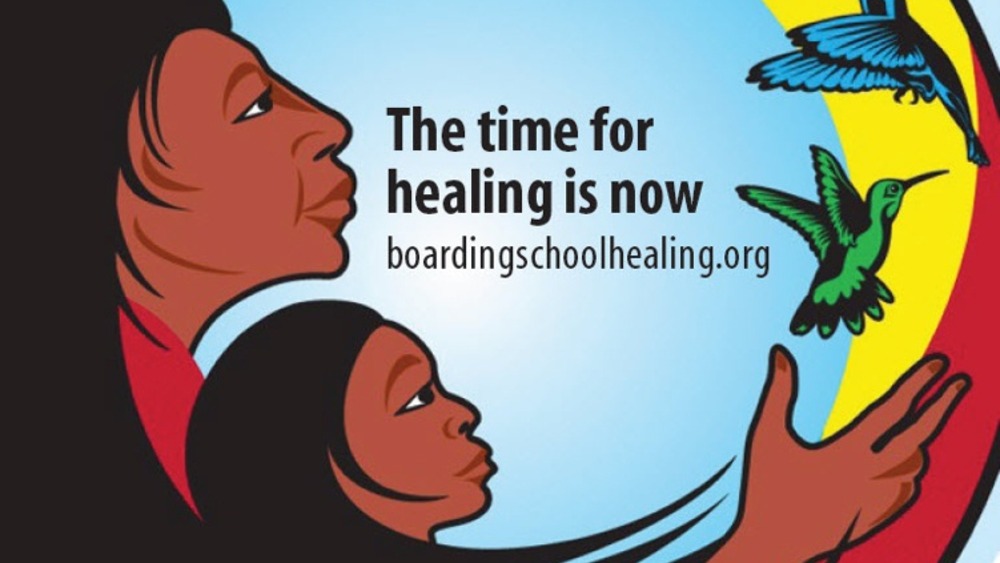
Emergence of a Distinct Legal Identity From the Forces of Assimilation: The Mesquakie Indians and the Fight for Citizenship, 1842-1912
This paper, “Emergence of a Distinct Legal Identity From the Forces of Assimilation: The Mesquakie Indians and the Fight for Citizenship” presents a close examination of the various legal disputes that led to Mesquakie citizenship. Among these disputes are a few cases that intersect with parents’…
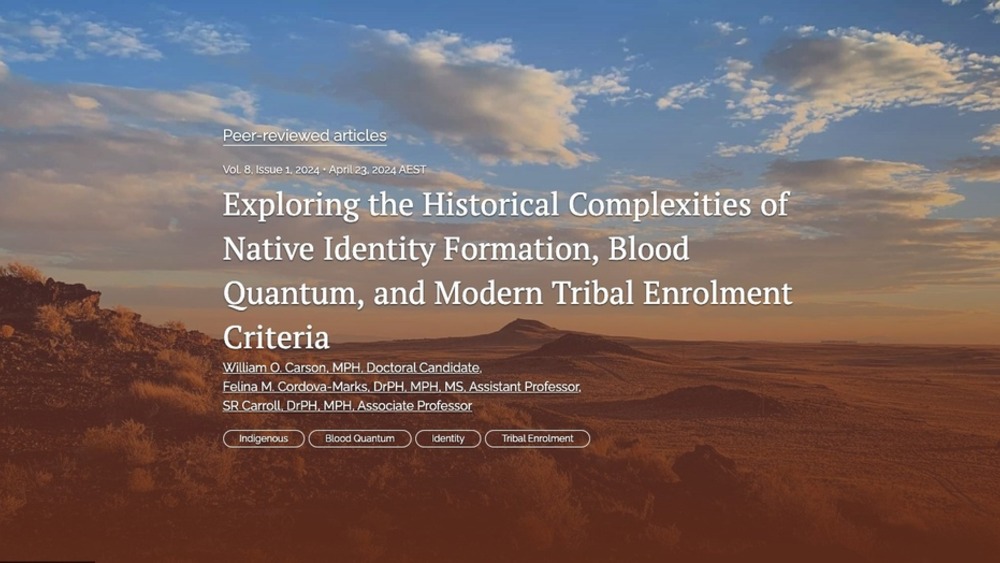
Exploring the Historical Complexities of Native Identity Formation, Blood Quantum, and Modern Tribal Enrolment Criteria
In the United States, blood quantum (BQ) based enrolment criteria find their roots in settler-colonial policies to erase, assimilate, and subjugate Indigenous Peoples and individuals. As a result, Native Nations throughout the United States continue to debate such practices. Current research on…
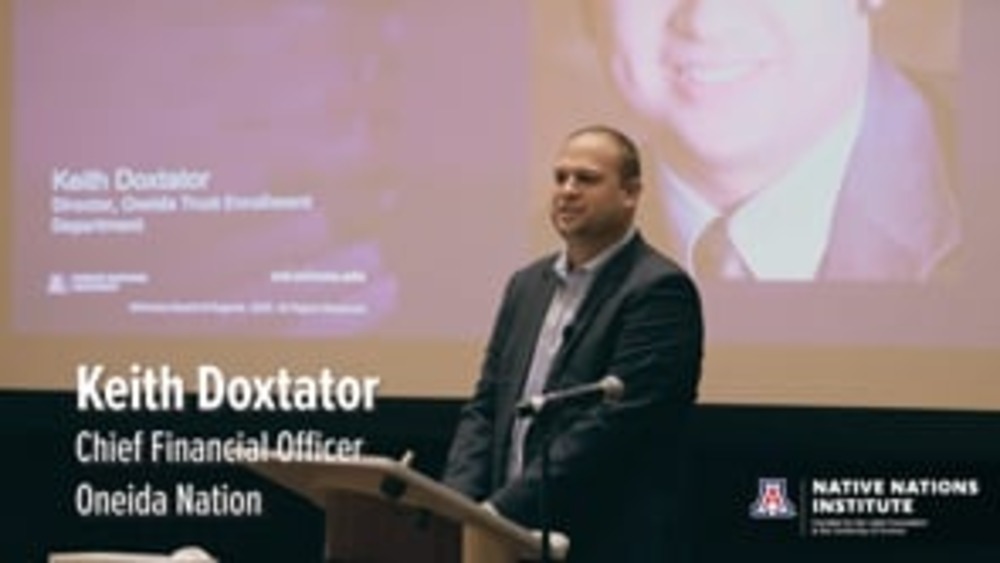
Hot Topics in Tribal Governance: Citizenship + Blood Quantum
As the Director of the Oneida Nation's Trust Enrollment Department, Doxtator used the skills he honed as a financial analyst to examine the current state of the nation's enrollment criteria and illustrate what that meant for the future of the nation. Since Oneida was still relying on Blood Quantum…
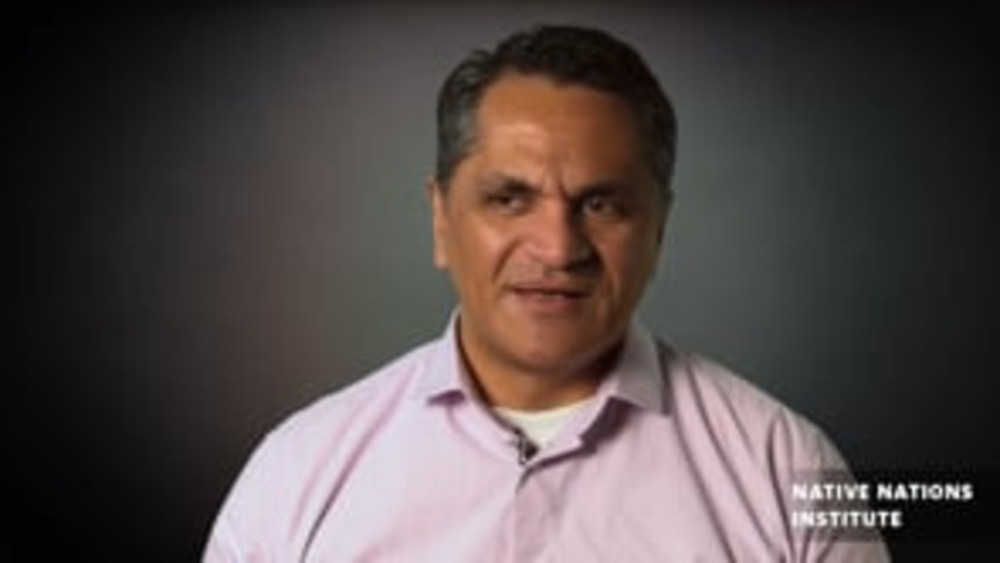
Robert Joseph: History of Maori Governance and Self-Determination
In this interview, Māori barrister and Senior Lecturer at The University of Waikato Te Whare Wānanga o Waikato, Dr. Robert A. Joseph offers his expert analysis of governance and law through the historical perspective of Māori self-governance. Dr. Joseph gives a summary of the complexities…
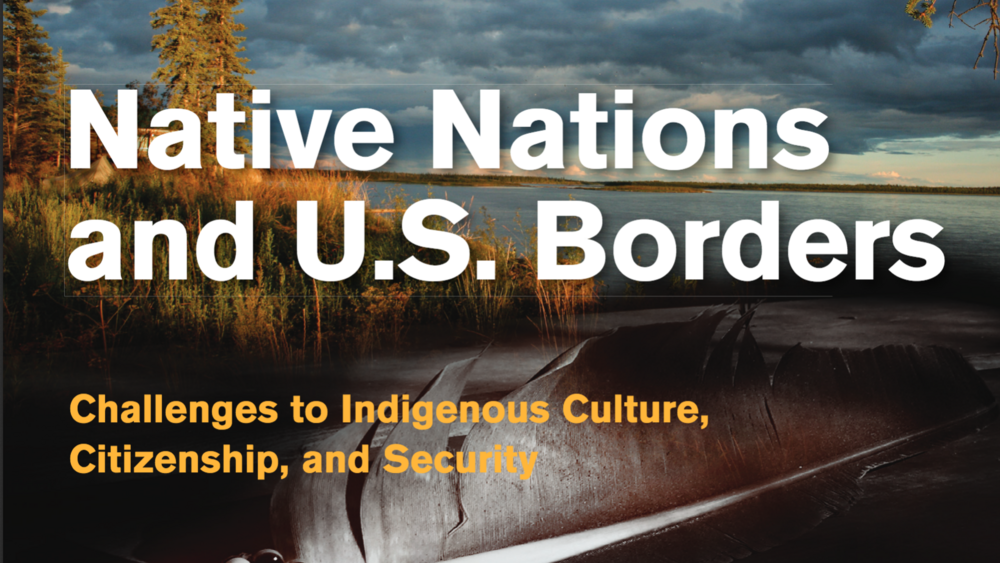
Native Nations and U.S. Borders: Challenges to Indigenous Culture, Citizenship, and Security
A comprehensive review of Native nations along or near the U.S. borders with Mexico, Canada, and Russia response to border-related challenges to citizenship, crossing rights and border security, culture, the environment and natural resources, and public health and safety. This book seeks to inform…
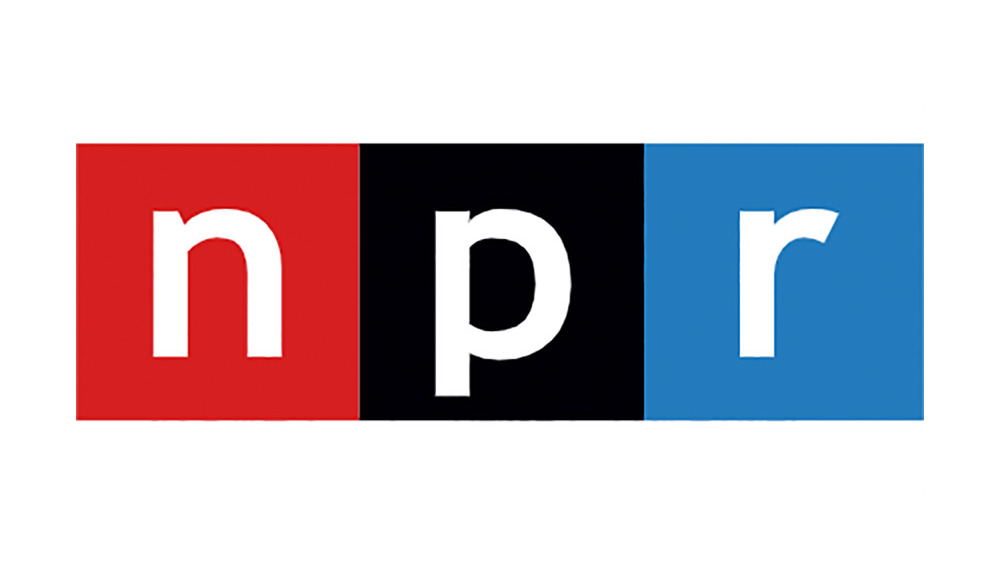
What Makes Someone American Indian?
Who is Native American? It's a complicated question that has tripped up, among others, Massachusetts Senator Elizabeth Warren. The Democratic presidential hopeful recently apologized for identifying American Indian as her race more than 30 years ago. It was around that time that the U.S. census saw…
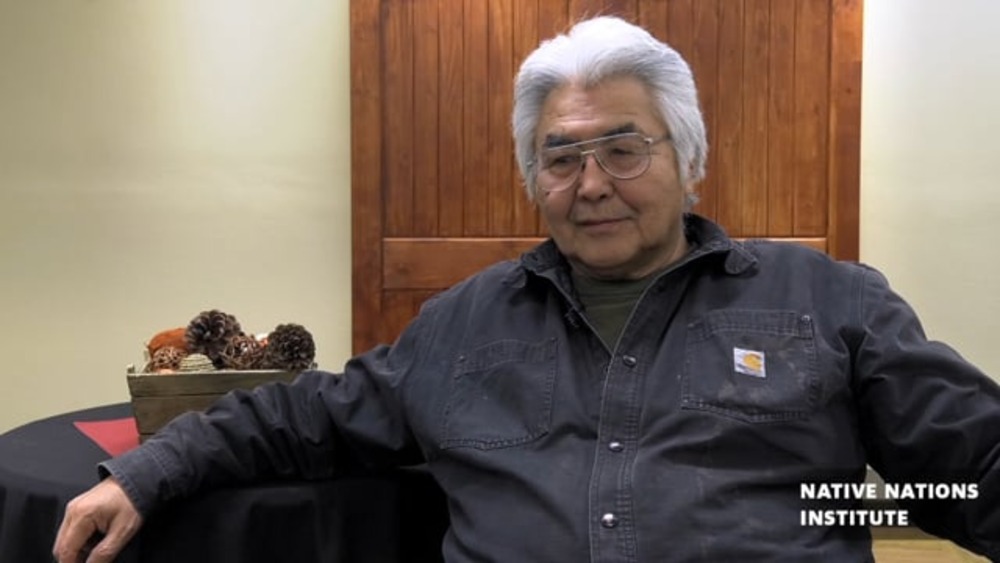
Wilson Justin: Leadership with Cultural Knowledge and Perseverance
Wilson Justin is a cultural ambassador for Cheesh’na Tribal council and serves as a Vice Chair Board of Directors for Mt. Sanford Tribal Consortium. He relays his expertise and perspective on the intricacies of Indigenous governance in Alaska through adapting cultural traditions, creating a…
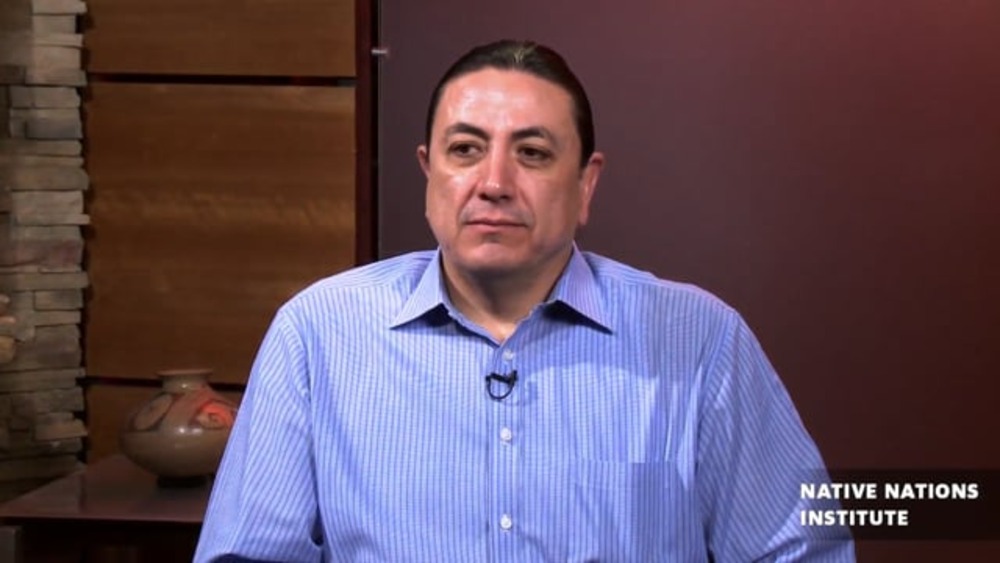
Chairman Dave Archambault II: Laying the Foundation for Tribal Leadership and Self-governance
Chairman Archambault’s wealth and breadth of knowledge and experience in the tribal labor and workforce development arena is unparalleled. He currently serves as the chief executive officer of one of the largest tribes in the Dakotas, leading 500 tribal government employees and overseeing an array…
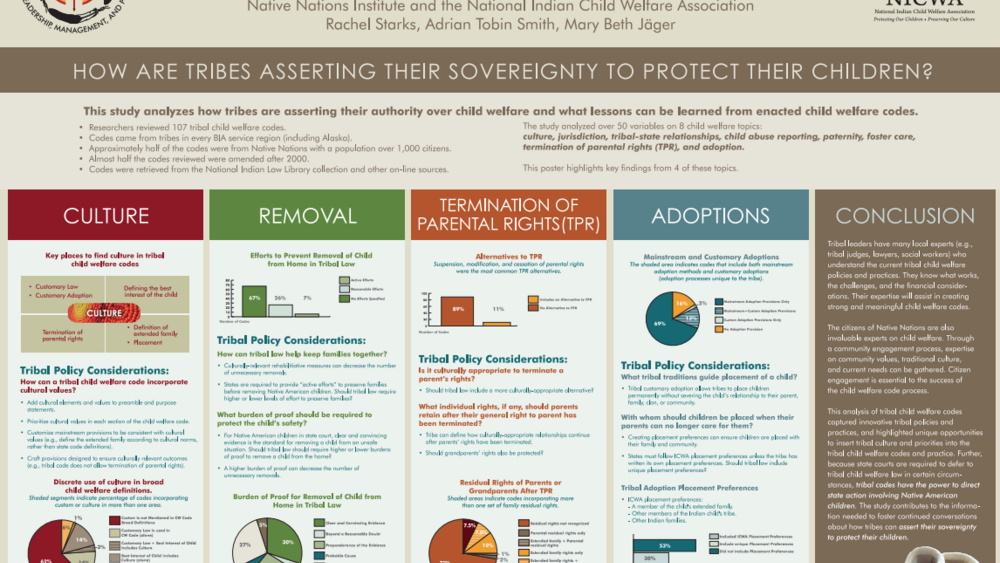
Protecting Our Children: A Review of 100+ Tribal Welfare Codes
NNI researchers Mary Beth Jäger (Citizen Potawatomi), Rachel Starks (Zuni/Navajo), and National Indian Child Welfare Association governmental affairs staff attorney, Adrian Smith shared the results of an ongoing study on culture, removal, termination of parental rights, and adoption in tribal child…
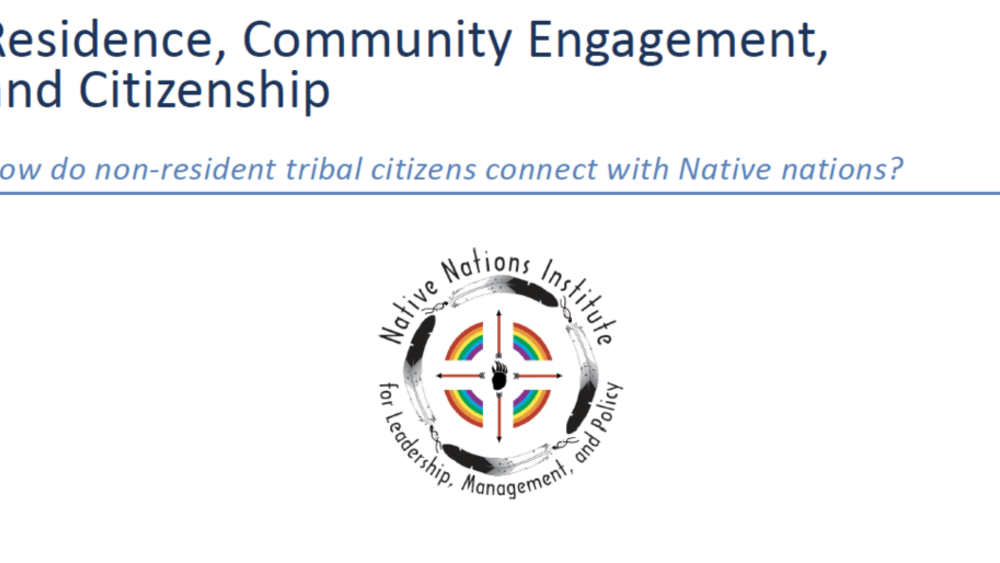
Residence, Community Engagement, and Citizenship: How do non-resident tribal citizens connect with Native nations?
The research draws from an online survey targeted primarily at younger tribal citizens living away from tribal lands; this project provides preliminary insight into 1) non-resident citizens' engagement with their tribes, and 2) the ways tribes might connect more effectively with non-resident…
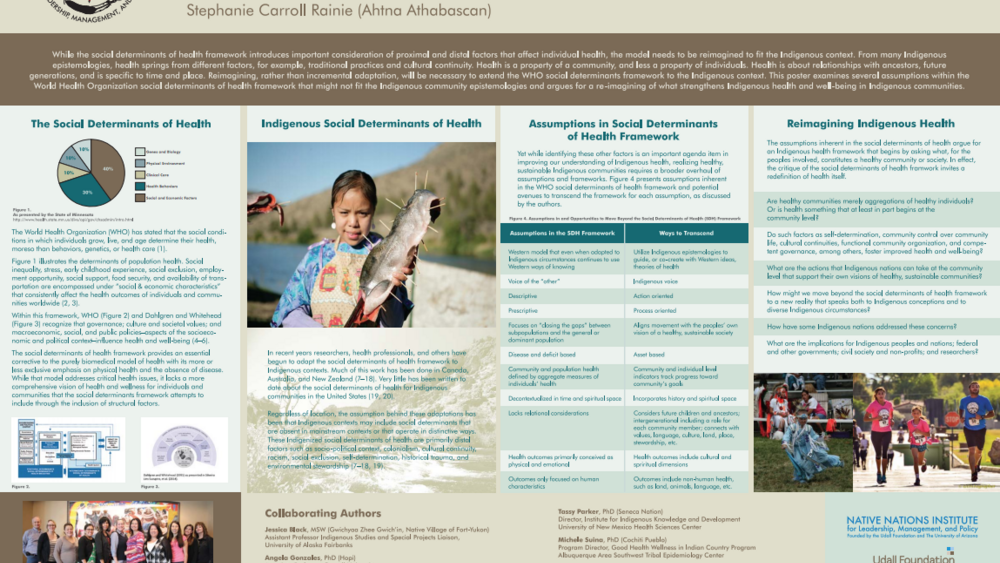
Reimagining Indigenous Health: Moving Beyond the Social Determinants of Health
Senior researcher Stephanie Carroll Rainie critiqued the application of social determinants of health models in Native communities and challenged readers to reconsider how they think about Indigenous health.
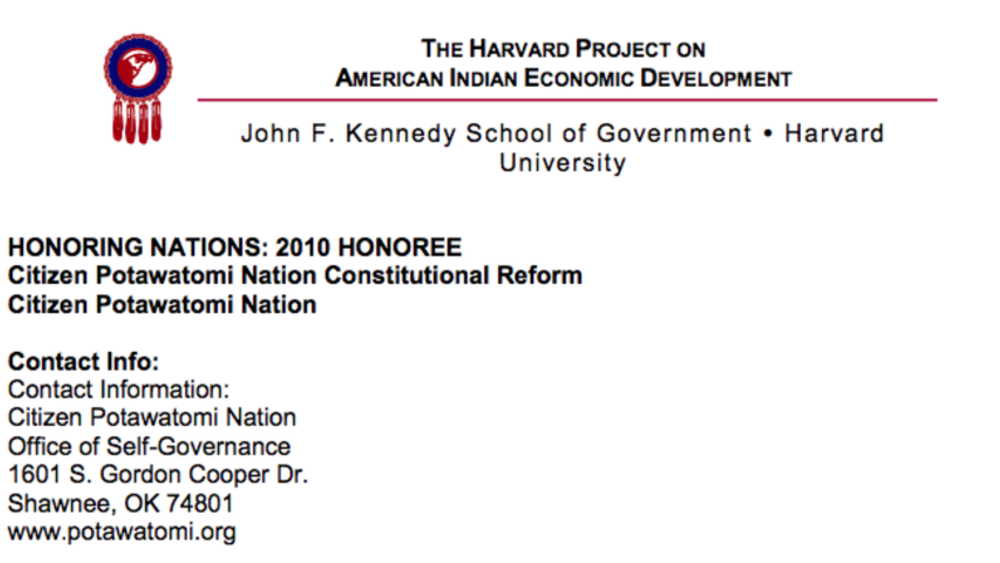
Citizen Potawatomi Nation Constitutional Reform
Tribal governments across the United States work tirelessly to provide their citizens with effective systems of governance. After years of failed assimilation attempts, the federal government imposed blanket political systems upon almost all tribes regardless of those systems’ effectiveness or…
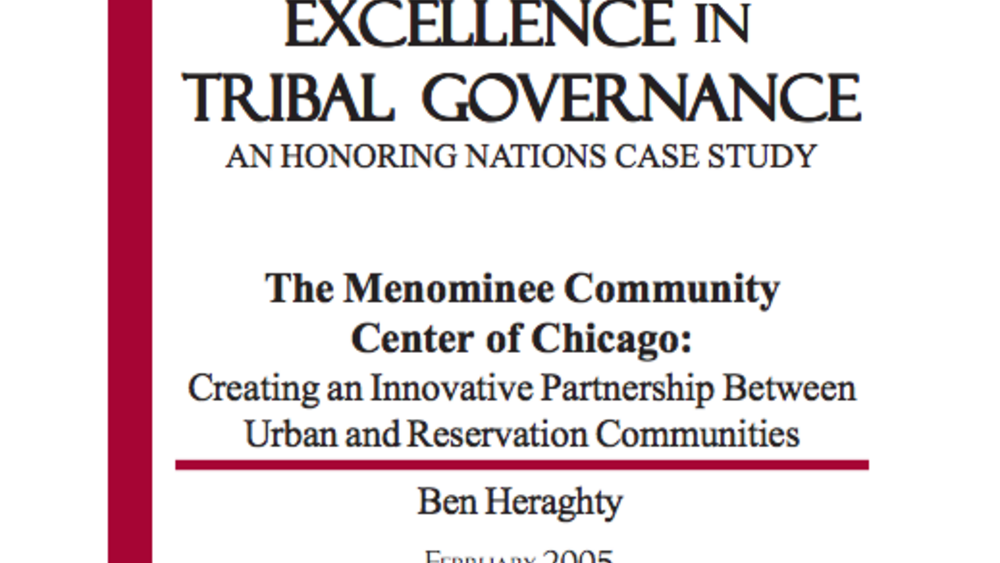
The Menominee Community Center of Chicago: Creating an Innovative Partnership Between Urban and Reservation Communities
Over half of the Menominee Indian Tribe of Wisconsin lives off-reservation. Regrettably, the ties between the Menominee’s reservation and urban populations, like those between the split populations of so many Indian nations, have been tenuous for decades. In 1994, a group…
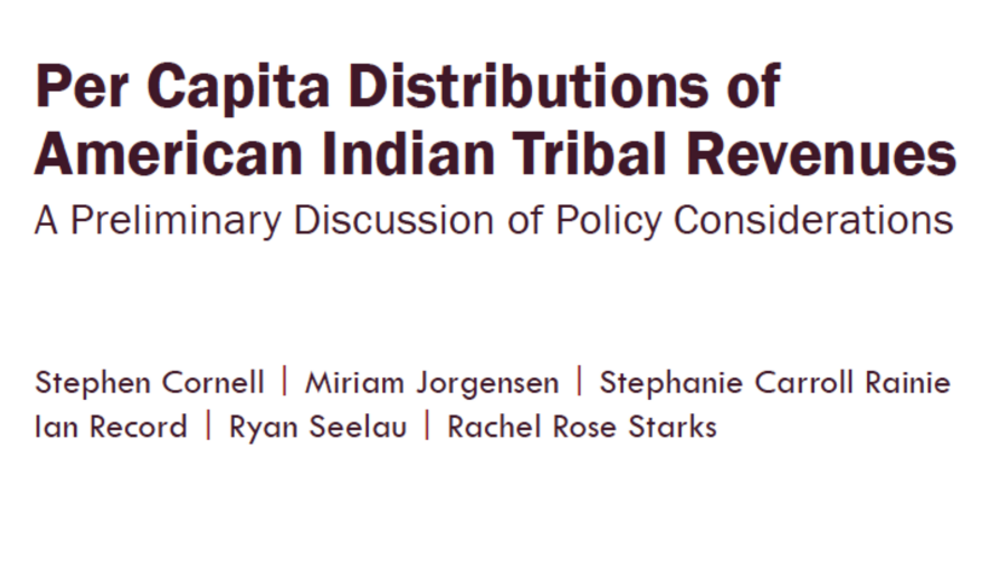
Per Capita Distributions of American Indian Tribal Revenues: A Preliminary Discussion of Policy Considerations
This paper examines policy considerations relevant to per capita distributions of tribal revenues. It offers Native nation leaders and citizens food for thought as they consider whether or not to issue per capita payments and, if they choose to do so, how to structure the distribution of funds and…
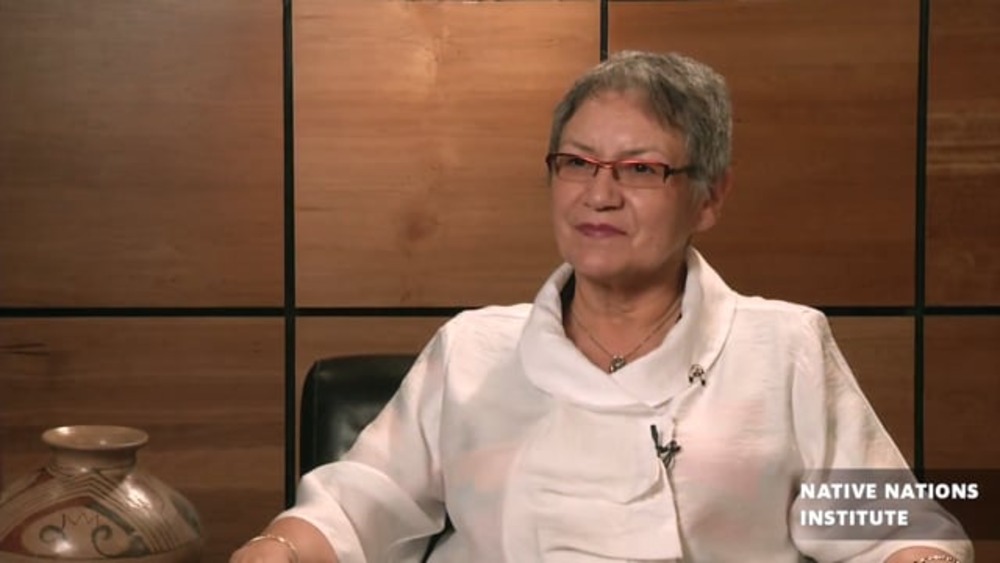
Sophie Pierre: Governance the Ktunaxa Nation Way
Sophie Pierre is a respected native leader that has been at the forefront of building key components and infrastructure for modern self-governance in the Ktunaxa Nation. Her tenure as Chief Commission for the BC Treaty Commission appointed by governments of Canada and British Columbia and the First…
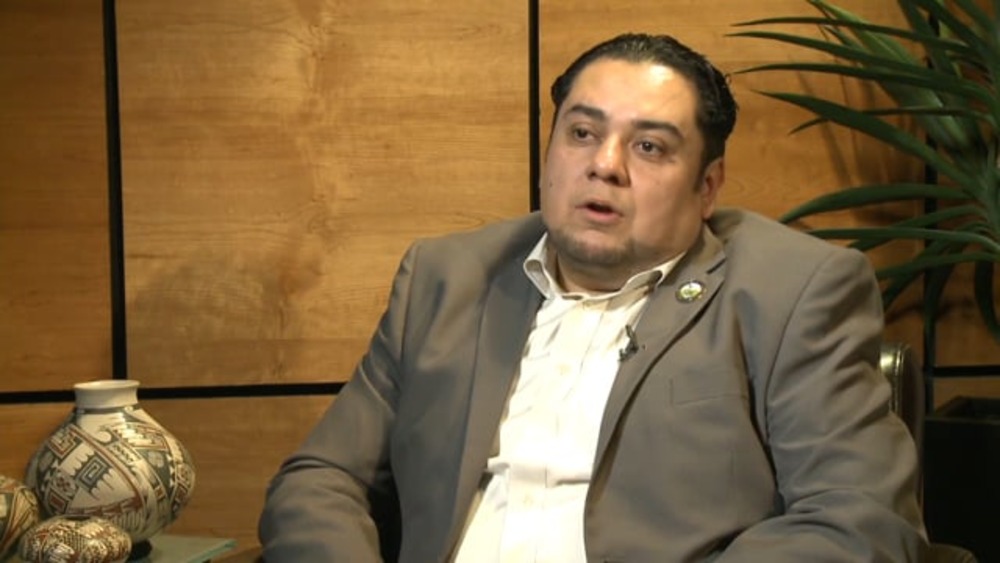
Rudy Ortega, Jr.: Asserting Sovereignty and Self-Governance
Rudy Ortega, Jr., then Vice President and citizen of the Fernandeño Tataviam Band of Mission Indians, shares his experiences leading his community and engaging in Fernandeño Tataviam self-governance in spite of his nation not yet being a state or federally recognized tribal…
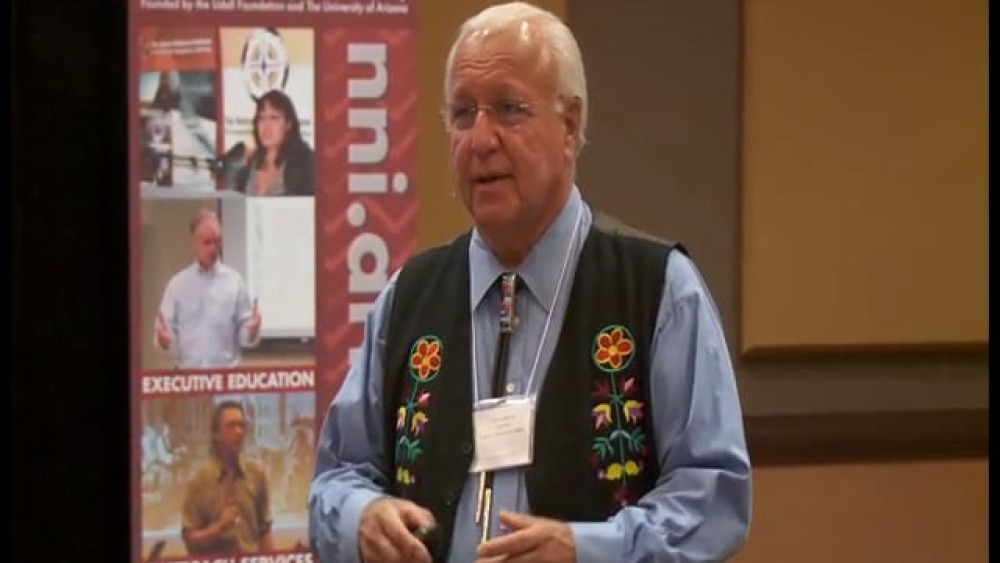
John "Rocky" Barrett: The Origins of Blood Quantum Among the Citizen Potawatomi
In this excerpt from his presentation at NNI's "Emerging leaders" seminar in 2012, Citizen Potawatomi Nation Chairman John "Rocky" Barrett provides an overview of how the U.S. government -- specifically the Bureau of Indian Affairs -- imposed blood quantum on the Citizen Potawatomi people, and how…
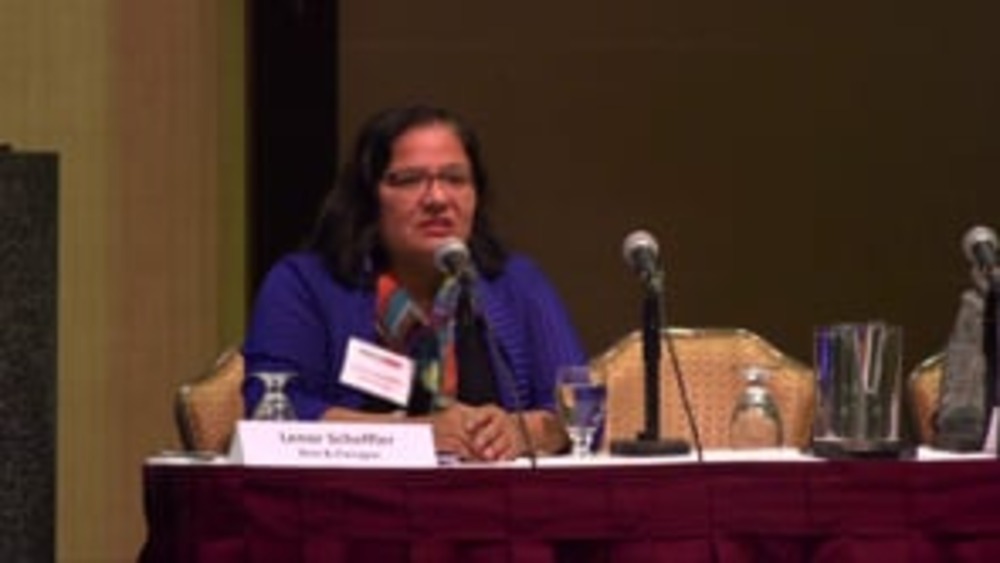
Lenor Scheffler: The Lower Sioux Indian Community's Approach to Citizenship
Lawyer Lenor Scheffler (Lower Sioux Indian Community) provides an overview of the Lower Sioux Indian Community's approach to defining citizenship, which is predicated on residency within the Lower Sioux reservation's boundaries. She also discusses how eligibility for tribal social services is tied…
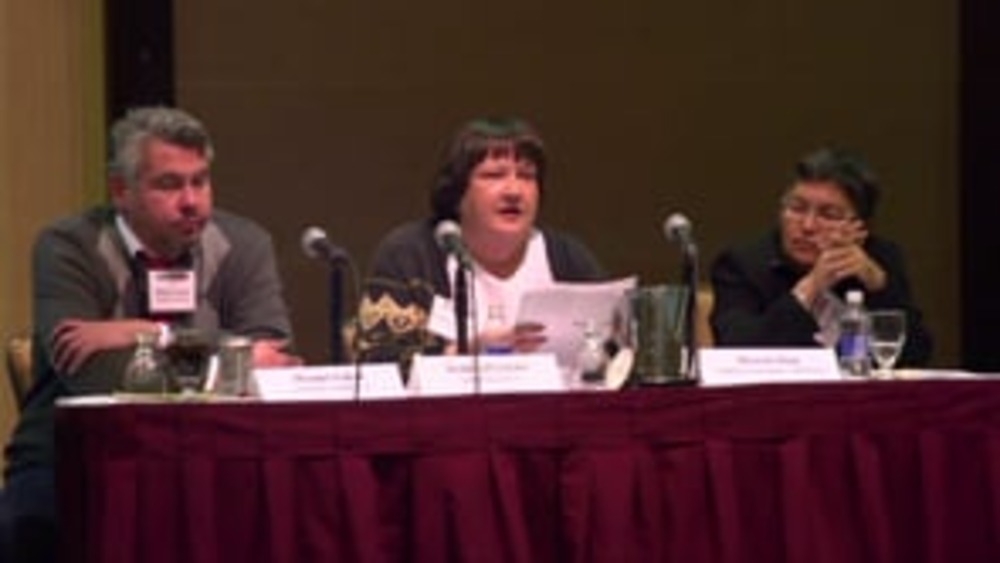
Deborah Locke: Disenrollment: My Personal Story
Deborah Locke, adopted by a Fond du Lac Band of Lake Superior Chippewa couple when she was a small child, shares her heartbreaking story of how she and her adopted siblings were disenrolled by the Band decades later because they were not the biological descendants of Fond du Lac Band members and…
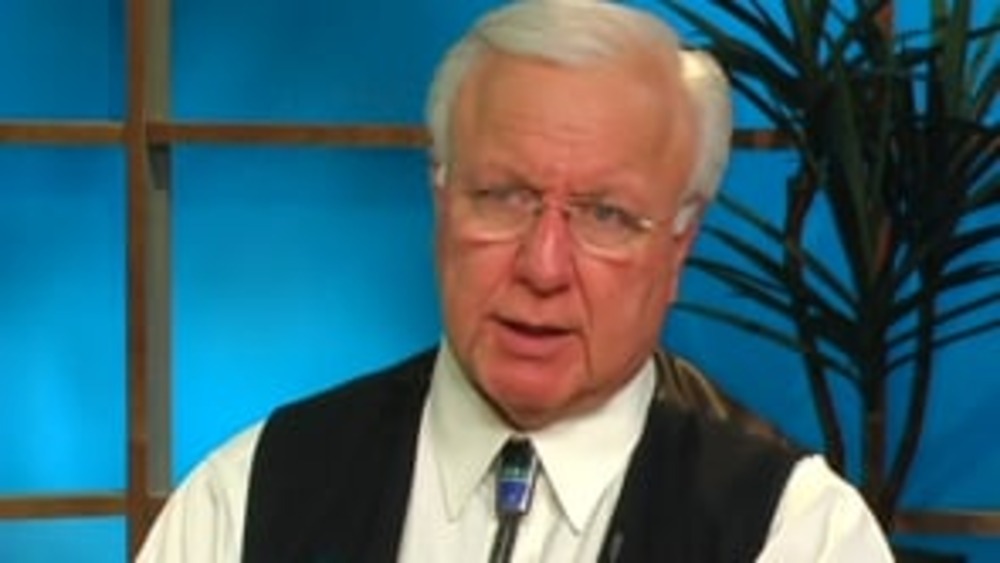
John "Rocky" Barrett: Citizen Potawatomi's Inclusive Approach to Citizenship
A 3-minute clip of an interview with Chairman Barrett describing how Citizen Potawatomi Nation created a government structure and constitution that worked for the nation's large and very dispersed population.
